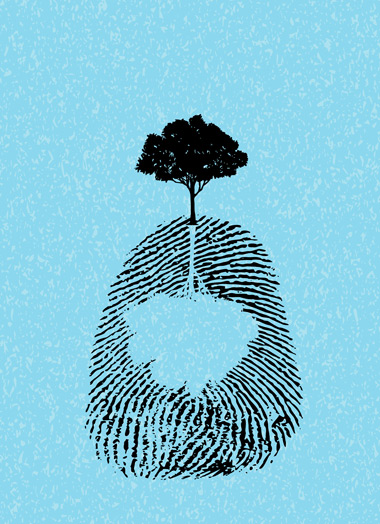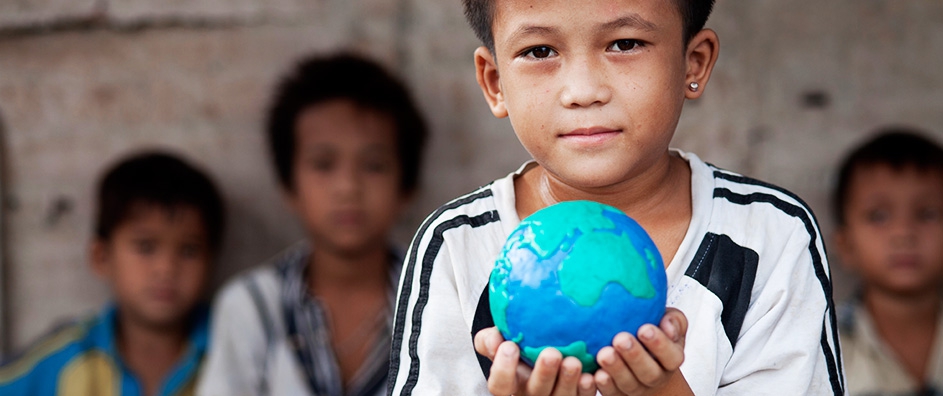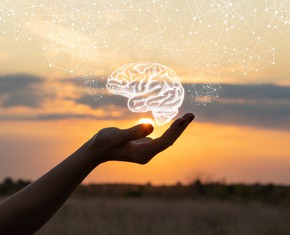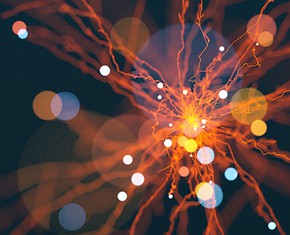The views expressed in our content reflect individual perspectives and do not represent the authoritative views of the Baha'i Faith.
If we mature spiritually as individuals, then wouldn’t it make sense that we also mature collectively as a species?
The Baha’i teachings view the entire evolutionary arc of human history that way:
The suckling babe passeth through various physical stages, growing and developing at every stage, until its body reacheth the age of maturity. Having arrived at this stage it acquireth the capacity to manifest spiritual and intellectual perfections. The lights of comprehension, intelligence and knowledge become perceptible in it and the powers of its soul unfold. Similarly, in the contingent world, the human species hath undergone progressive physical changes and, by a slow process, hath scaled the ladder of civilization, realizing in itself the wonders, excellencies and gifts of humanity in their most glorious form, until it gained the capacity to express the splendors of spiritual perfections and divine ideals and became capable of hearkening to the call of God. Then at last the call of the Kingdom was raised, the spiritual virtues and perfections were revealed, the Sun of Reality dawned, and the teachings of the Most Great Peace, of the oneness of the world of humanity and of the universality of men, were promoted. We hope that the effulgence of these rays shall become more and more intense, and the ideal virtues more resplendent, so that the goal of this universal human process will be attained and the love of God will appear in the utmost grace and beauty and bedazzle all hearts. – Abdu’l-Baha, Selections from the Writings of Abdu’l-Baha, p. 285.
In myths, the hero brings something back to humanity from his journey on the seeker’s path–the bounteous gift of spiritual significance, the boon of knowledge and awareness. In this part of the journey, in the fourth valley on the seeker’s path, maturation in each individual ultimately produces maturity for the culture itself.
All the tests and experiences we have gone through bring wisdom and capacity. We seek enlightenment, knowledge and love, and as we traverse our path we find them. Our environment, our family and our loved ones nourish us for a couple of decades, until we develop the capacity to nourish others in return. As we grow and develop we come to know and understand the self, and then begin to transcend its limitations. This loving other-directedness inevitably ushers in a time of fulfillment. The fertile fields of our intelligence, our spirits, our hearts, and our quest all start to produce their hoped-for results. Then the mature adult becomes fruitful, like the mature tree.
 In all symbolism and mythology, trees stand for the path, the axis of life, and humanity itself.
In all symbolism and mythology, trees stand for the path, the axis of life, and humanity itself.
The billions of individuals who comprise humanity, much like a single tree with its myriad individual cells, all perform a function to keep the whole alive. Just as the individual tree grows and matures, so does the forest. In the same way, humankind collectively passes through stages of maturation, as well. With its insight and knowledge increasing as its capacities and abilities expand, our entire race, the human race, represents one growing, maturing organism. This profound and insightful truth, that humanity grows and matures as a unit, comes directly from the Baha’i teachings.
Such a startling and revolutionary concept suggests that, as seekers, our ultimate destiny involves helping bring about the collective maturation of the human race. Joseph Campbell writes about this idea at length, citing the influential historian Leo Frobenius, who after a lifetime of study came to view the entire history of humanity as a great, single process comparable in its stages to the phases of a single lifetime:
Very much as the individual life begins in childhood and advances through adolescence to maturity and old age, so likewise, the lifetime of our human race. Its childhood was of the long, long distant period of the primitive hunters, fishers, root-foragers, and planters, living in immediate relationship with their animal and plant neighbors. The second stage… commenced with the rise of the earliest agriculturally based, urban, and literate civilizations, each structured to accord with an imagined cosmic order, made known by way of the movements and conditions of the planetary lights. For those lights were then supposed to be the residences of governing spirits; whereas… we now know them to be as material as ourselves. The laws of earth and of our own minds have been extended to incorporate what formerly were the ranges and the powers of the gods, now recognized as of ourselves. Hence, the whole imagined support… has been withdrawn from ’out there,’ found centered in ourselves, and a new world age projected. – Joseph Campbell, Myths to Live By, pp. 252-253.
“A new world age projected,” Campbell calls it. “I am a passenger on the Spaceship Earth,” wrote Buckminster Fuller. “The new electronic interdependence recreates the world in the image of a global village,” says Marshall McLuhan. These and other forward-looking thinkers, following the lead of Baha’u’llah’s 19th Century teachings on collective human development, have all perceived the emerging need for world unity.
Philosophers and poets have dreamed of this ideal of world unity throughout history. Every mythic system has foretold a Golden Age, that storied time of peace and human harmony. Each person who seeks equality, fairness and justice in the world works toward the vision of that age. The emerging consciousness of world citizenship and the steady growth of a global community both mark the first stage of adulthood in humanity’s collective maturity.
















Comments
Sign in or create an account
Continue with Googleor